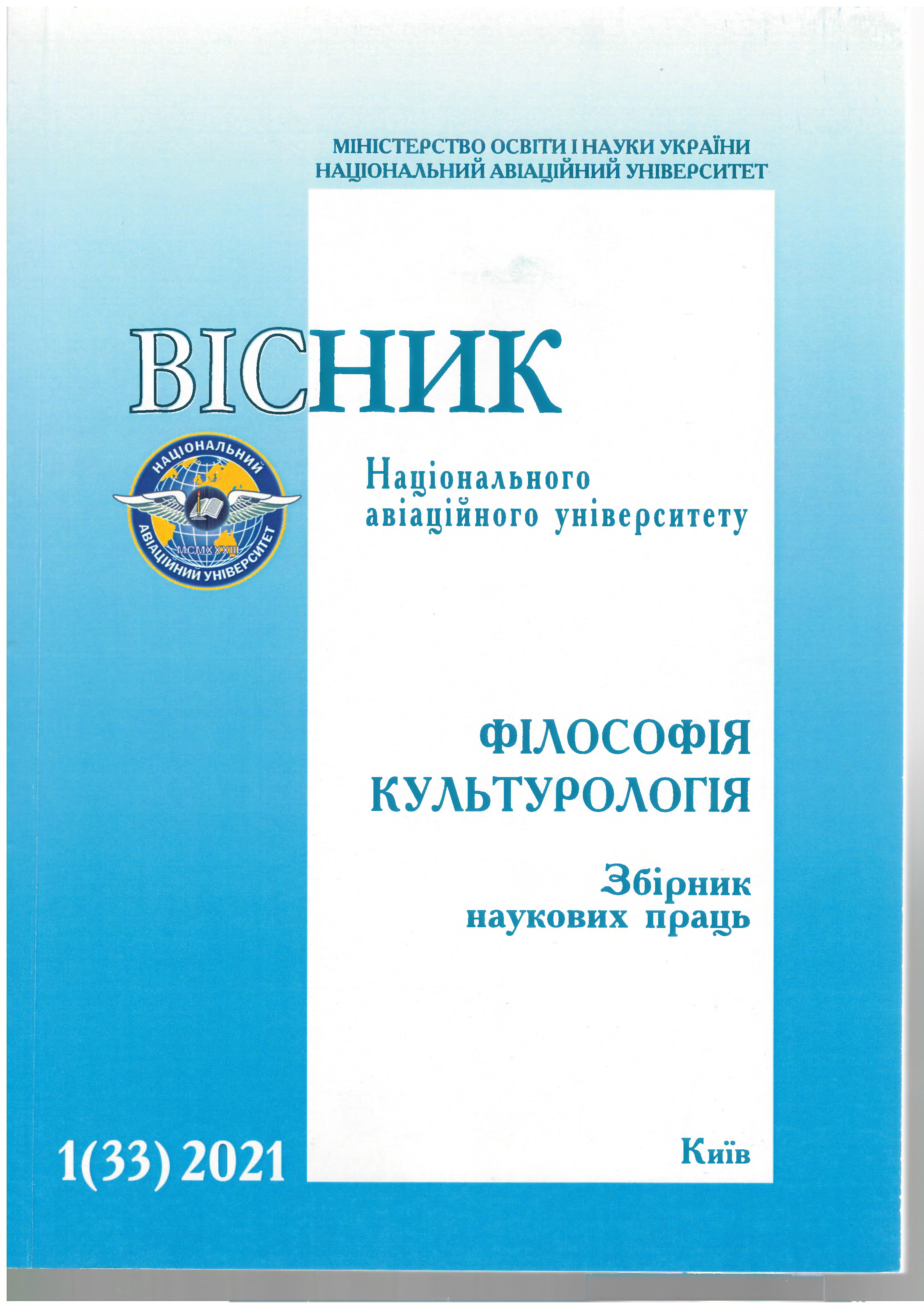THE CAUSATION OF EFFECTIVE ALTRUISM AS A CONDITION FOR THE DEVELOPMENT OF THE PUBLIC ORDER AFTER A PANDEMIC
DOI:
https://doi.org/10.18372/2412-2157.33.15648Keywords:
pandemic, coronavirus, fear, meaning of life, altruism, empathy, selfishness, effective altruism, public orderAbstract
Introduction.The article raises the question "What will be the public order after the COVID-19 pandemic?" The current situation makes it possible to draw analogies between anti-utopian novels such as "1984" by George Orwell, "Kallocaine" by Karin Boe, "The Glass Bees" by Ernst Junger. What these works of art have in common is that, as a result, interpersonal human relations, based on empathy, love, empathy, and care for one's neighbor, become paramount to "save humanity", because only the presence of such feelings can preserve human life and moral values. Summarizing the achievements of the past, analyzing modern methodological concepts, and interpreting identical historical and philosophical material, we understand that the analysis of causal links between fear, the meaning of life, and altruism, including effective altruism, and the impact of this concept on the restoration of public order after a pandemic was the subject of scientific research. The aim and tasks. The purpose of this scientific investigation is to conduct an expanded analysis and identify the causal links between the nature of fear, the meaning of life, and altruism; to cover the modern
understanding of effective altruism and solved due to this phenomenon the problems of development of public order in modern living conditions. Research methods. To achieve the aim and solve the problem of a particular problem used "explanatory" non-descriptive methodology: generalization achievements of the past along with the analysis of modern methodological concepts, interpretation of identical historical and philosophical material, creating a concept to solve the problem. Research results. Defining such a phenomenon as a "pandemic" and having characterized it, we get the answer to the question "What happens to the human immune system if the human body can not cope with the virus?"– the human soul isbeing suffered until it understands the essence of what is happening and, above all, the essence of its own existence. Based on this, the paper analyses the nature of fear, the meaning of life, altruism and identifies the links between these philosophical categories. The paper highlights the modern understanding of effective altruism and the possibility of solving the problem of bringing public order in modern conditions due to this phenomenon. Discussion. Analysis of the scientific achievements of philosophers and scientists in other branches of science at different times shows that interest like epidemics and pandemics has always existed. At the same time, the events surrounding the COVID-19 pandemic have led to a surge of scientific publications by both domestic and foreign researchers trying to find answers to the question of the future of humanity, which is currently experiencing moral decay and disorder. establishing public order in modern conditions. It became possible to study this problem and draw conclusions based on scientific works on the nature of fear, the meaning of life, and altruism.: P. Hajikurbanova, P. Haydenko, Rollo May, S. Kierkegaard, M. Heidegger, Y. Pustovoit; Democritus, L. Feuerbach, W. Frankl; O. Comte, M. Hoffman, R. Dawkins, W. Nemirovsky; P. Singer and W.Makaskil. Conclusion Thus, effective altruism is a social movement with its own philosophy, which uses facts, evidence, and reasoning in search of the most effective ways to improve the world and establish public order after the COVID-19 pandemic.
References
Martin, L. Hoffman. Empathy and Moral Development :
Implications for Caring and Justice. Cambridge : Cambridge
University Press, 2000 : 331 р.
Porta, Miquel. Dictionary of Epidemiology. Oxford
University Press, 2008 : 179 p.
Гаджикурбанова, П. А. Страх и ответственность :
этика технологической цивилизации Ганса Йонаса.
Этическая мысль. М. : ИФ РАН 4. 2003. 151–177.
Гайденко, П. П. Страх. Новая философская
энциклопедия : в 4-х т. Т. 3. М. : Мысль, 2010 : 645 с.
Джордж, Орвелл. «1984». Роман. Майстри світової
прози. Видавництво Жупанського. 2015 : 312 с. ISBN 978-
-2355-57-4.
Ернст, Юнгер. «Скляні бджоли». Роман. Майстри
світової прози. Видавництво Жупанського. 2017 : 152 с.
ISBN 978-966-2355-86-4.
Карін, Боє. «Каллокаїн». Роман. Майстри світової
прози. Видавництво Жупанського. 2016 : 184 с. ISBN 978-
-2355-71-0.
Людвиг, Фейербах. Избранные философские
произведения в двух томах. М. : Госполитиздат, Т. 1. 1955 : 343 с.
Макаскилл, Уильям. «Ум во благо. От добрых
намерений - к эффективному альтруизму». Изд-во Corpus.
Серия: psychology. 2018 : 288 с. ISBN: 978-5-17-105755-8.
Материалисты Древней Греции, Собрание текстов
Гераклита, Демокрита и Эпикура. М.: Государственное
издательство политической літератур. 1955 : 239 с.
Мозгова, Н. Г. Віртуалізація соціальної реальності як
спроба подолання самотності людини доби Постмодерну.
Вісник Національного авіаційного університету. Серія:
Філософія. Культурологія 1 (31). 2020 : 35-37.
Немировский, В. Г. Смысл жизни : проблемы и поиски.
К. : Политиздат Украины. 1990 : 18-21.
Пода, Т. А. Вплив пандемії COVID-19 на міжнародні
відносини: ключові тенденції. Вісник Національного
авіаційного університету. Серія: Філософія. Культурологія.
(32). 2020 : 124-128.
Пустовойт, Ю. В. Феномен страха в античной культуре
и патристике (Этико-философский анализ). Автореферат
диссертации на соискание ученой степени кандидата
философских наук. Тула, 2007 : 23 с.
Річард, Докінз. «Егоїстичний ген». Роман. Вид-во
«Книжковий Клуб «Клуб сімейного дозвілля»». 2017 : 540 с. ISBN
-617-12-2523-7.
Ролло, Мэй. Смысл тривоги. Современная психология.
Теория и практика. Изд-во : Институт общегуманитарных
исследований. 2016 : 416 с. ISBN 978-5-88230-272-5.
Руденко, С. Історія української філософії:
недескриптивна Методологія дослідження. Філософська
думка, 5, 2013 : 94–102.
Сингер, Питер. Жизнь, которую вы можете спасти.
Издательство : Такие дела. 2018 : 224 с. ISBN 978-5-604184-1-5.
Сухова, Н. М. Пандемія: загроза чи урок людству в ХХІ
столітті? Вісник Національного авіаційного університету.
Серія: Філософія. Культурологія. 2 (32). 2020 : 135-140.
ORCID: 0000-0002-2422-43970003.
Хайдеггер, М. Пролегомены к истории понятия
времени. Томск: Издательство «Водолей». 1998 : 384 с.


